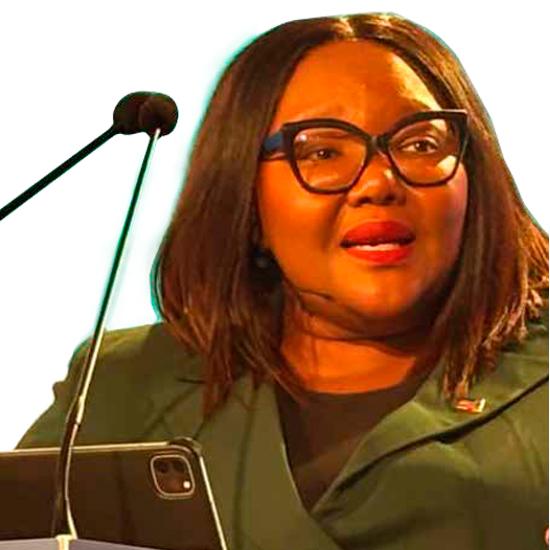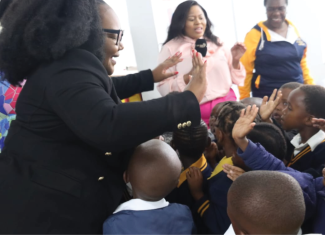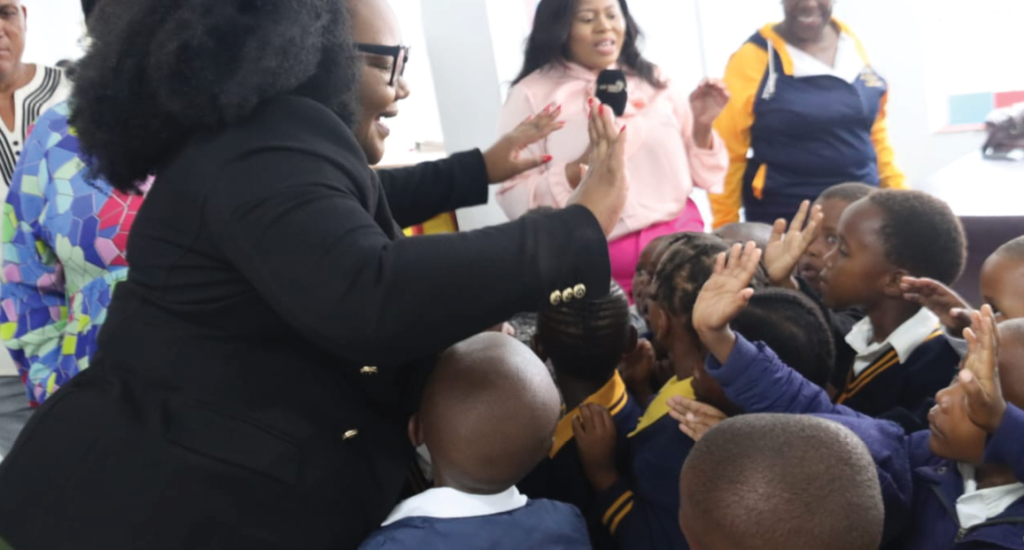Siviwe Gwarube:
Fostering a brighter future with quality education

At only 35, South Africa’s Basic Education Minister Siviwe Gwarube embodies the transformative potential of youthful leadership in the Public Service.
Recently honoured among the World Economic Forum’s prestigious Young Global Leaders (YGL) Class of 2025, Gwarube approaches this international recognition with characteristic humility and determination.
“It is great to be recognised as one of young global leaders shaping not only public policy but also governance,” she told Public Sector Manager magazine. “This acknowledges the work I have put into my career in public service over the past decade or so”.
Gwarube’s political journey began at 22, an age when most young professionals are still finding their footing in their careers and life in general. Today, as Basic Education Minister, Gwarube steers one of South Africa’s most critical sectors.
The YGL recognition prompted a moment of deep introspection: “It made me pause and say, ‘This is why I choose what I do,’” she acknowledged.
I have a privilege of working for the public and I do not take that privilege lightly.
For Gwarube, this international recognition serves as both validation of her current path and a catalyst for future impact. “Being recognised as somebody who is effective was affirming,” she said.
Eager to harness the power of the YGL network, she envisions strategic collaborations that could transform the educational landscape. “I want to breathe life into some of the things we are thinking about regarding education, not only in South Africa but across the African continent. The continent sits on the cusp of a youth dividend. But that dividend can only be harnessed if we ensure that young people are educated.”
Three decades into democracy, Gwarube acknowledges significant educational progress, particularly in expanding access to education across previously marginalised regions. “Looking at the matric pass rate, which is an accepted barometer of success, provinces like the Eastern Cape, once chronically underperforming, now hit 74%,” she noted.
Yet, Gwarube is keenly aware of that for the education sector to be truly transformed it would take meaningful outcomes rather than mere statistical improvements. “It is not enough to simply pass students; we must ensure a quality pass – a bachelor’s or diploma pass – that opens doors,” she added.
Transformative interventions
The Minister highlighted transformative interventions that address fundamental barriers to learning, such as the National School Nutrition Programme (NSNP), which provides essential nourishment to millions of students daily.
“No child can learn on an empty stomach,” she stated. “Each year R10 billion is spent to ensure children access at least one meal a day – sometimes it is their only meal”.
She also highlighted poor levels of literacy among learners as another crisis. “Eight out of ten 10-year-olds in Grade 4 cannot read for meaning,” she warns.
She supports the notion that interventions need to start in early childhood development (ECD), a portfolio recently transferred from Social Development to the Basic Education Department. “This ensures coherence from birth to age 18,” Gwarube explained. “If we strengthen cognitive milestones in the first 1 000 days, we will not need to obsess over Math and Science uptake later.”
She firmly believes that education must, ultimately, lead to economic participation. “Once young people leave school, the workforce must be ready to absorb them so they can contribute to their countries,” the Minister asserts.
An honest appraisal
Gwarube confronts systemic hurdles in basic education with unflinching honesty. Among South Africa’s 24 000 schools, many remain “unviable, dangerous or undignified”, a reality compounded by significant funding constraints.
“Our budget is large, but needs outstrip resources,” she acknowledged. “Provinces face tough choices – filling teacher posts or paying service providers. These decisions erode gains if unchecked”.
Her vision extends beyond government responsibility to community ownership. “Vandalism and neglect undermine our efforts,” she explains. “We need communities to protect these assets. Schools belong to communities”.
To South Africa’s youth, Gwarube delivered a message of urgency and empowerment: “Get started. Lead as you are. Do not wait for milestones.”
She passionately advocates for civic engagement, whether through politics or public service. “Politics affects rent, transport, safety – everything,” she said, before calling for greater civic involvement. “Know the councillor in your area and hold leaders accountable. Democracy is not guaranteed – it needs active citizens”.
The Minister envisions a future where young people increasingly shape government’s policy direction. “In five to 10 years, I should not be the youngest Minister,” she stated. “Seniority does not monopolise good ideas”.
While recognising technology’s transformative potential, Gwarube insists that South Africa needs to first take care of the fundamentals. “To leverage the tech wave, we need electricity, connectivity and community buy-in. If foundations are strong, our youth can lead globally,” she explained pragmatically.
She called for strategic partnerships, including initiatives with the South African Reserve Bank, to bridge the gap between classroom learning and workplace demands. Yet she candidly admits: “We need better synergy with higher education to smooth transitions.”
Gwarube’s vision for the future is both immediate and far-reaching: “I wish for youth to engage fiercely in democracy and resolve unemployment through quality education. Every child deserves skills to live with dignity, not become a statistic of hopelessness.”




